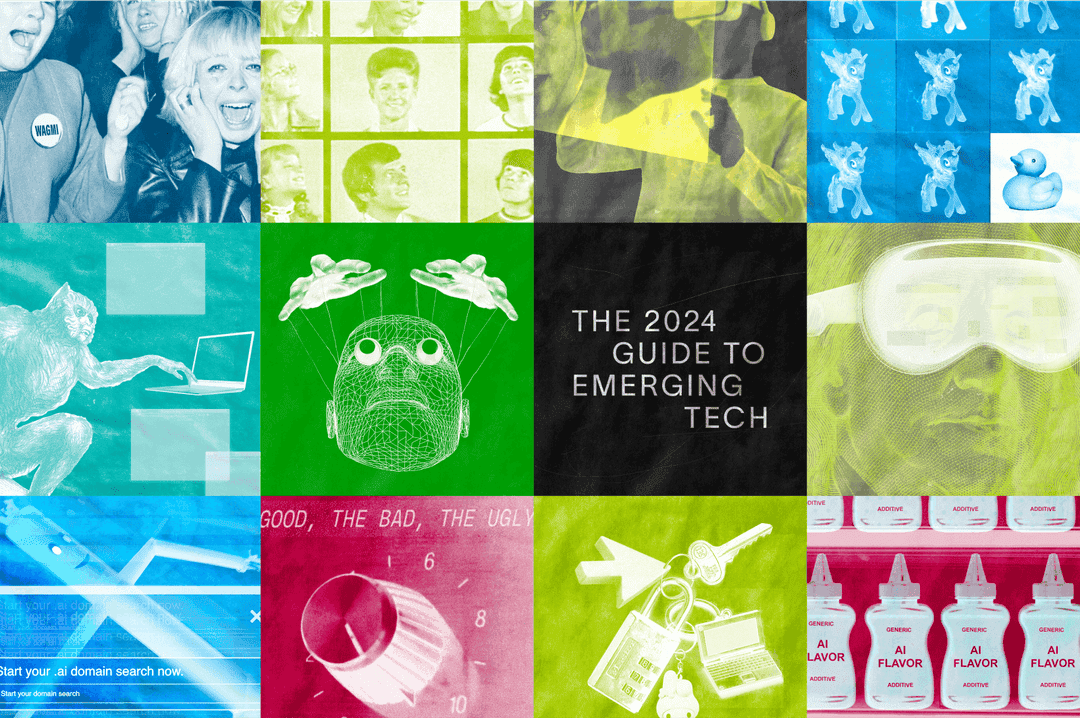01.29.24
In an age of overwhelming tech, fundamentals (and human judgment) still matter

Read Latest
Introducing the 2024 Blokhaus Guide to Emerging Tech
Introduction
Written by Mark Soares, Founder and CMO
Reflecting on the year, we've seen a phenomenal surge in AI technologies, driven by breakthroughs from newly minted incumbents like MidJourney, OpenAI (ChatGPT), and ElevenLabs. This rapid evolution has sparked a wave of enthusiasm, with the emergence of a concept known as e/acc, or effective accelerationism. Advocates of this movement, like Marc Andreessen with his Techno-Optimist Manifesto, view technological progression as a catalyst for human advancement and well-being. The pace at which AI has advanced this year is astonishing and very reminiscent of the early days of blockchain technology.
However, blockchain's journey in 2023 has been starkly different. Plagued by significant industry setbacks in 2022, the market endured a prolonged stagnation, leading to the demise or internal restructuring of numerous projects. Yet, this challenging period also strengthened the sector, paving the way for a more mature and robust category. High-profile institutional endorsements, such as Blackrock's Bitcoin ETF, signal this maturation, despite residual turbulence from late 2023, like Binance CEO Changpeng Zhao's resigning and more.
As 2024 gets underway, a stronger blockchain category appears poised for a resurgence – its resilience and necessity becoming more evident than ever, especially in an age of infinite fungibility as that produced by AI. In contrast, AI's journey is still nascent, characterized by a veritable explosion of new tools and applications in 2023. The adoption of platforms like ChatGPT, achieving 100 million users at a breakneck pace, underscores the sector's potential and humanity’s desire for such tools. Yet, the rapidity of AI's growth has also sparked some concerns, particularly around the ethical and existential implications of approaching Artificial General Intelligence (AGI).
Despite these apprehensions, AI has already demonstrated its capacity to inspire and innovate, from generating art through simple prompts to reviving songs from legendary bands like the Beatles. These moments of awe unite both proponents and skeptics, highlighting AI's potential to enhance human creativity; indeed, AI seems ready to launch the age of the polymath, where any human can become proficient in nearly any field.
However, looking ahead to 2024 the AI landscape is likely to be tumultuous, marked by the emergence and dissolution of numerous ventures. This dynamism, however, is a sign of a maturing industry – who among us would have guessed that OpenAI would have fired its CEO after receiving an $86 billion valuation, instantly compromising all of the shareholder value, only to have the decision reversed days later? Not us. But it’s safe to say that amidst all this chaos, there will be a surge in demand for human experts.
As AI continues to flood the market with content and capabilities, the role of tastemakers becomes ever more crucial. These are the arbiters of quality in a sea of AI-generated output, ensuring that the end products resonate with their human audience (after all, humans are still the only consumers of products and services, AI-produced or not). In this rapidly evolving landscape, the discernment and expertise of these human connoisseurs will be more valuable than ever. Their insights will be essential in filtering the deluge of AI creations, helping to identify and elevate the truly remarkable amidst the ordinary, and ensuring that the advancements of AI continue to serve and enhance human experiences.
We hope this year’s Blokhaus Guide to Emerging Tech provides you with some valuable food for thought and sparks interesting discussion as we look to the year ahead. Let us know what you think, and don’t hesitate to reach out.
Read the full report here.


